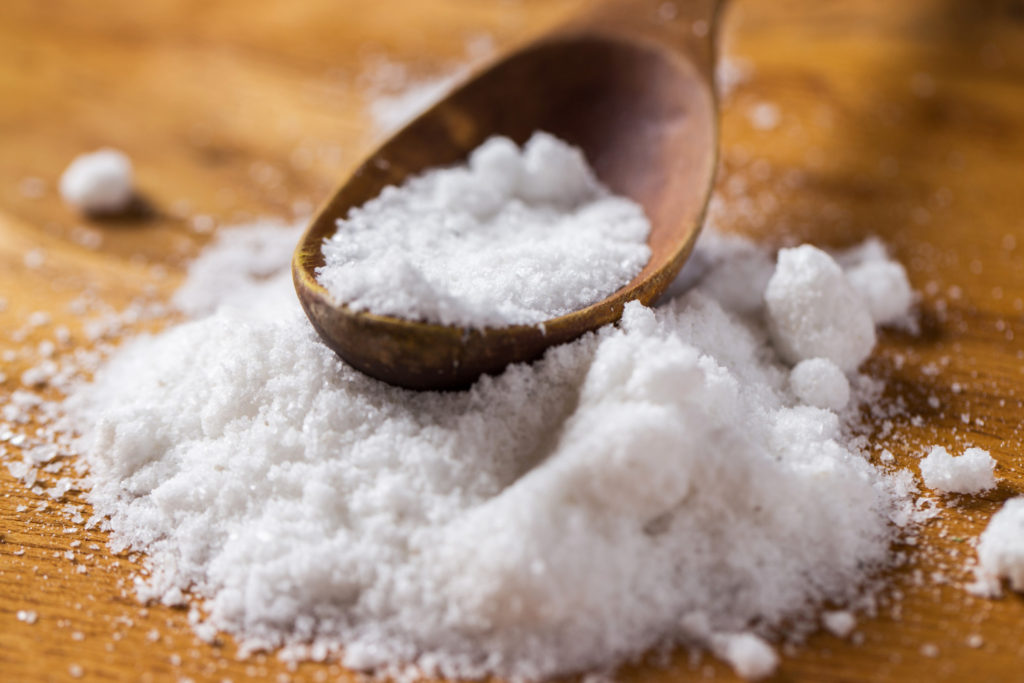
Salt is made up of around 40% sodium and 60% chloride. It’s commonly used to add flavor to foods or preserve them.
Sodium is a mineral essential for optimal muscle and nerve function. Together with chloride, it also helps your body maintain proper water and mineral balance.
Bloating
Salt can cause water retention as the body tries to dilute the salt with large amounts of water. This can cause bloating which is uncomfortable and may be unattractive. The best way to reduce this bloating is to drink more water, which will help to flush the salt out of your system.
Rise in blood pressure
Sodium is primarily located in our blood, and it pulls water into it. So, if you eat too much sodium, more water enters your bloodstream. The greater volume of blood pushes against blood vessel walls, causing high blood pressure (hypertension).
Excessive Thirst
Generally, people who are consuming too much salt tend to also be thirstier. Encouraging you to drink water is another way in which your body tries to correct the sodium-to-water ratio. The resulting increase in fluid intake can cause you to urinate more than usual.
Hypernatremia
Failing to consume fluids after eating high amounts of salt may cause your body’s sodium levels to rise above a safe level, resulting in a condition known as hypernatremia. Hypernatremia occurs when a person becomes dehydrated and the kidneys cannot cope with excess salt in the bloodstream. Hypernatremia can cause water to leach out of your cells and into your blood, in an attempt to dilute the excess sodium. If left untreated, this fluid shift can result in confusion, seizures, coma, and even death.
Poor sleep quality
Eating too much sodium can mess with your sleep, especially if you eat it in the evening. A spike in blood pressure along with urges to drink and pee make staying asleep difficult.
Your risk of stomach cancer may increase.
Stomach cancer is one of the six most common forms of cancer, and it’s the third most deadly worldwide. Higher salt intakes are a risk factor for the development of stomach cancer. Researchers don’t fully understand the connection between salt and cancer, and it’s not clear if all foods high in sodium have the same risk. However, experts believe that salt-rich diets may make a person more vulnerable to stomach cancer by causing ulcers or inflammation of the stomach lining.
More likely to get kidney stones.
Regularly consuming excess salt can make you more susceptible to forming kidney stones. This is because excess salt increases the amount of calcium in the urine. Kidney stones form when calcium combines with oxalates or uric acid in urine and begin to form crystals. As these crystals get bigger, they become stones that can travel to the urinary tract and get stuck. The result is usually intense pain until that stone passes.
What to do if you take too much salt
Drink sufficient amounts of water to help your body regain its desired sodium-to-water ratio.
Eat foods that are rich in potassium, such as fruits, vegetables, legumes, nuts, seeds, and dairy. Sodium and potassium have complementary functions in your body: sodium ups your blood pressure and promotes fluid retention; potassium relaxes and lowers your blood pressure and helps you flush out excess fluid.
Reduce the amount of salt you consume in other meals. Try to resist the urge to add additional salt to meals.

Recent Comments